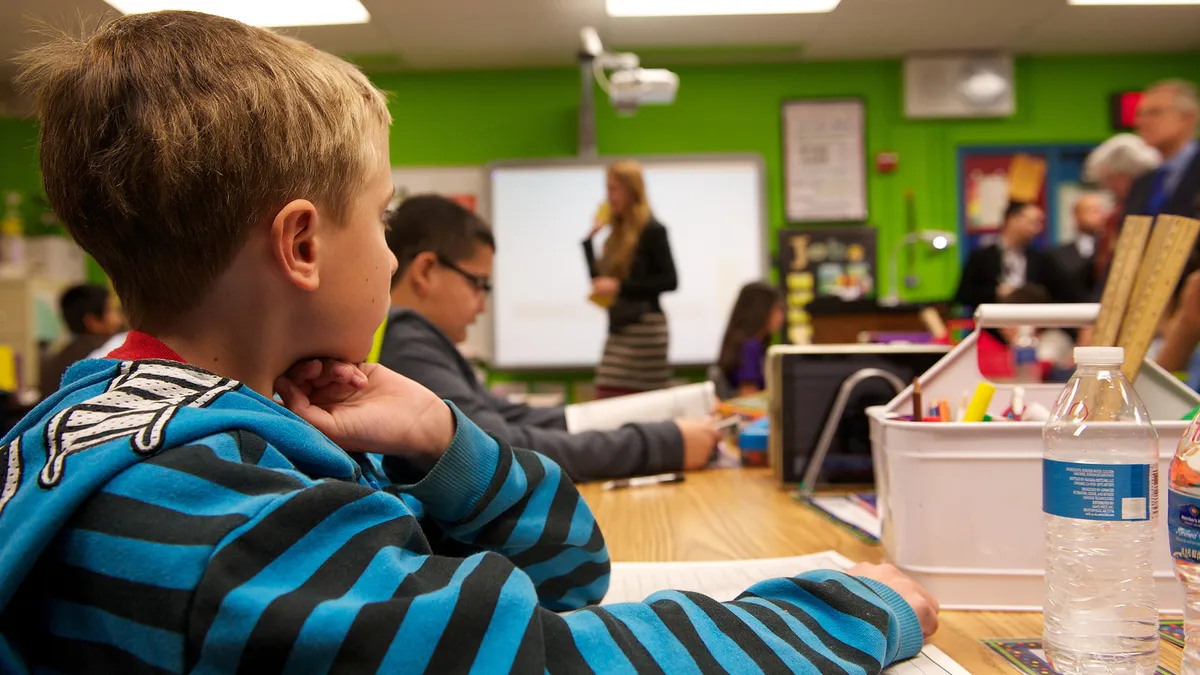Dive Brief:
- Psychologist Scott Barry Kaufman is calling for schools to do a better job of identifying students who are talented and creative but also have learning disabilities, as they can often be overlooked as "gifted" because of their limitations or, conversely, not given the support they need because they function at a high level, NPR reports.
- A new book on the topic edited by Kaufman, who was in special education but thrived and is now a graduate of both Harvard and Yale, describes ways that schools could put less emphasis on IQ and look at qualities such as capacity, competence, creativity and commitment.
- He recommends making a greater effort to identify these students, particularly from minority groups, and provide them with the proper challenges and settings — including activities outside of the classroom where they might thrive.
Dive Insight:
Understood, a consortium of groups that works to broaden understanding of learning and attention issues, has also reported that "twice-exceptional," or "2E," students are easily overlooked because their talents mask their learning or attention issues or vice-versa. The two can also even mask each other.
The American Association of School Administrators has shown that some school districts have been successful in efforts to support and challenge students who are gifted but may not demonstrate high achievement. They generally use multiple identification criteria and train staff and other professionals about the needs of these students.
The talents of 2E minority students are overlooked even more often, according to the National Association for Gifted Children. The association's data also shows that not only do poor and minority students not perform at top levels in schools, only 56% of those low income students who begin school in the top quartile were still there by 5th grade. It says teachers are generally untrained to identify or support them, and that the schools they are most likely to attend don’t have courses or programs for them.
Recommendations include assessment strategies that would help, including consistently using proven standards for identifying giftedness and assessing students a variety of ways to reduce the chance of bias. It also reports that high-achieving, low-income students were half as likely to attend selective colleges, and only about half who attend then graduate.












